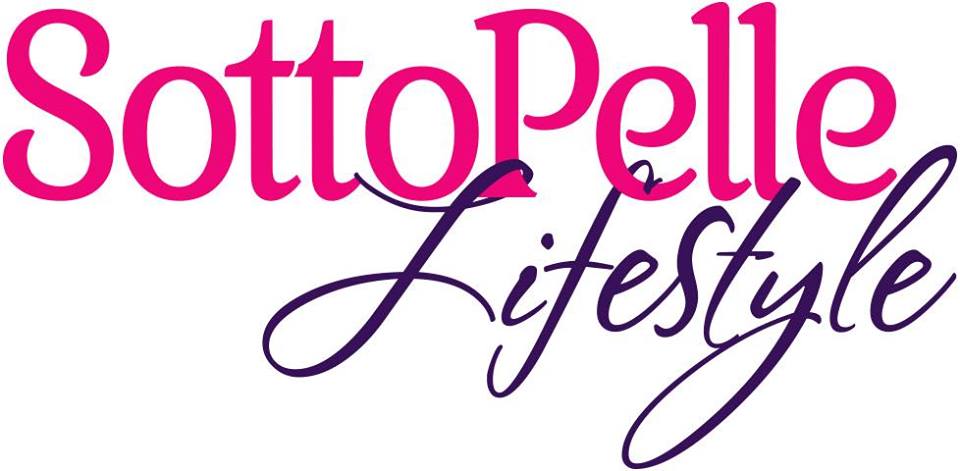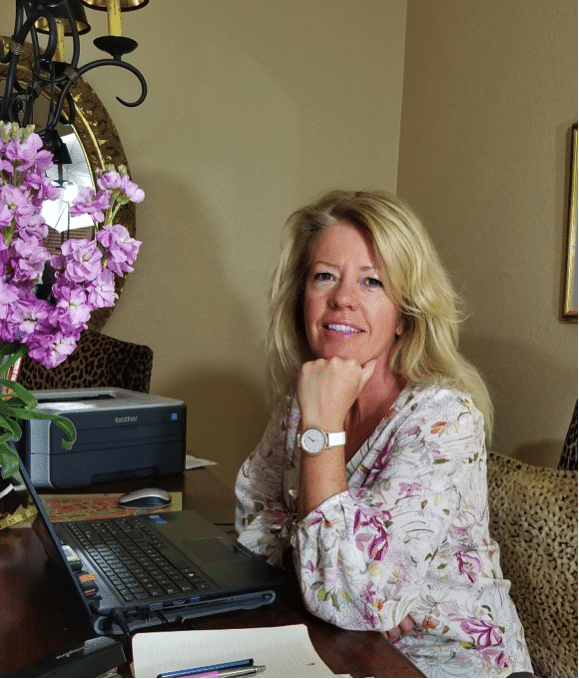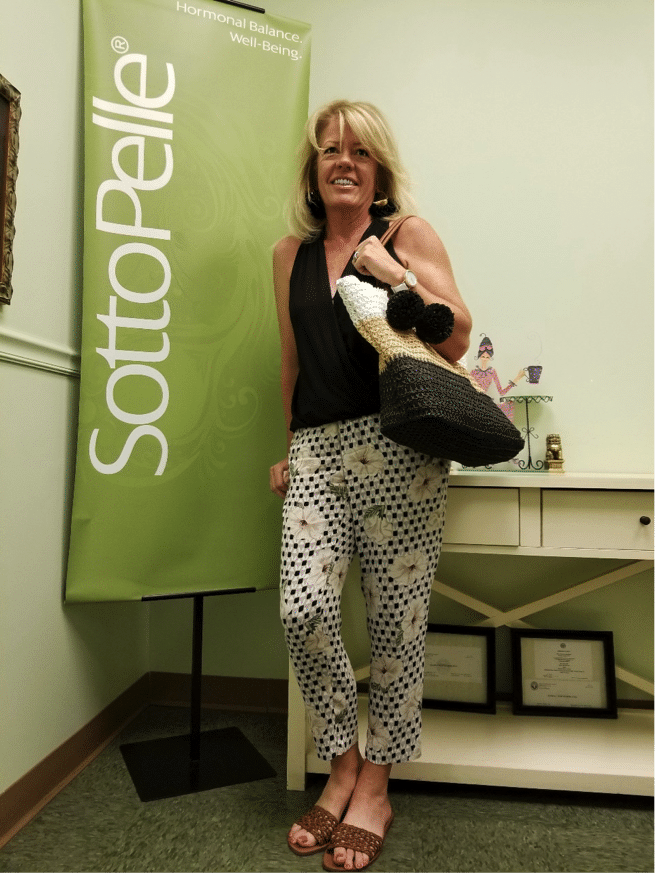I recently wrote a blog (linked HERE) about my menopause journey, which thanks to SottoPelle® was a short story!
There was a tremendous response from women suffering the effects of menopause, many of whom have not found a solution or are suffering with ineffective solutions. Thank you to all the ladies who contacted me with questions and to share their stories.
Today, I invite you to come along and experience one of my appointments with SottoPelle®. A commitment I have been making every four months for six years without hesitation, because, it enables me to live my best life, no hormone surges, none of the symptoms of menopause, no side effects, just a normal well-balanced human being. Well, hormonally well balanced that is, ha ha!
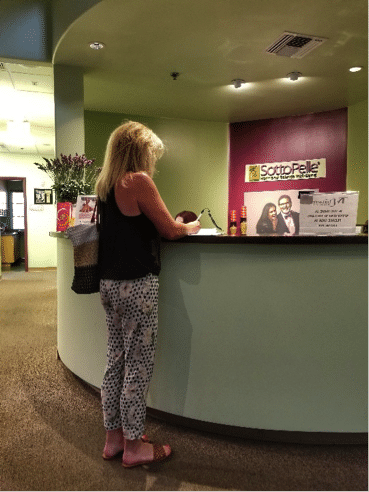
Reception area of the Paradise Valley AZ office
After checking in for the appointment, the nurse ensures nothing has changed since the last visit, no surgeries, no new medications that type of thing, and once you’ve signed off on the paperwork, you’re ready to receive your pellets.
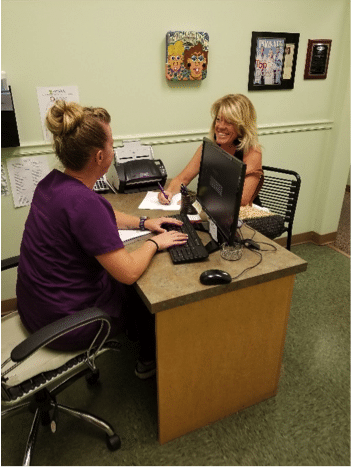
A quick update with the nurse to ensure the records are up to date.
Just to re-cap, SottoPelle® is a hormone replacement therapy (HRT) that uses naturally sourced plant-based, bio-identical hormones in the form of tiny pellets. These are inserted a short way under the surface of the skin in the fleshy part of the butt cheek. Dr Tutera MD, FACOG, founded SottoPelle® in 1992, he was one of the pioneers of this form of HRT which provides the most effective and consistent distribution of hormones throughout the body.
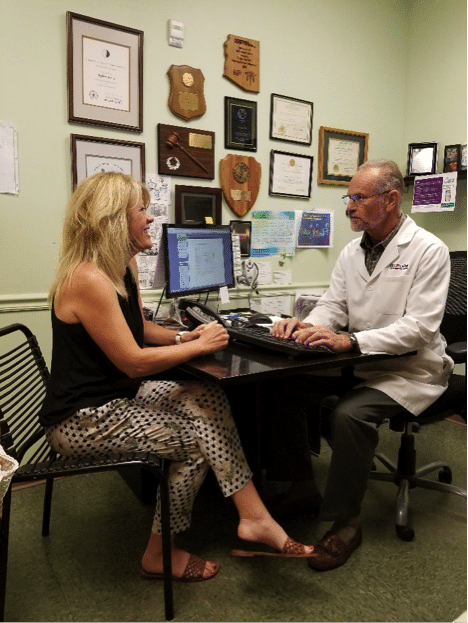
I’ve been seeing Dr Steve for six years but still manage to talk his ear off!
The doctor or physician’s assistant who administers the pellets, checks my file, ensures there have been no changes since the last visit and determines which butt cheek my pellets will be placed on this occasion. Each visit the pellets are placed in the alternate cheek.
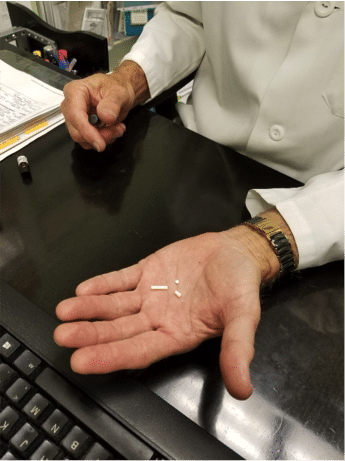
This is what my midlife dynamo looks like!
These tiny compounded pellets are the magic formula to feeling as young as I did in my prime with energy, strength and a sense of complete well-being. Remember, this is a very individual approach to HRT, so my prescription is different to other women based on various factors. Every six months, blood work is taken providing extensive hormone panels to ensure each patient is prescribed the correct dosage, which could mean less or more testosterone, estrogen or whatever your individual requirements are, it’s not a one-size-fits-all solution.
All the procedure requires is to lay on my side with relevant butt cheek up, and a local anesthetic is injected to the site where the pellets will be administered. Once numb, a tiny incision is made, and the prescribed pellets are inserted subcutaneously. Waterproof foam tape is placed over the incision which remains in place for three days and that is it. The procedure takes about two minutes! I’m in and out of the appointment in about 15 minutes total, if I can keep the chit-chatting to a minimum!

Pellets inserted, off to the mall! Scottsdale Fashion Square is dangerously close to my SottoPelle® office.
This is an example of what I wear to my appointment, something comfortable and lose fitting. There’s no need to undress for the occasion, an adjustment of clothing enough to expose the insertion site is all that’s required. It takes a while for the anesthetic to wear off, but the prospect of squishing into tight jeans doesn’t appeal right after the procedure!
The Only Restrictions
For three days after the insertion, you should not take tub baths, soaking in hot tubs or swimming and no exercise other than walking, which translated means shopping! You can shower! Exertive exercise that uses the muscles in the hips or glutes could possibly push the pellets from their new home, so it’s strongly advised against.

Always on the go thanks to SottoPelle®
After three days you can remove the waterproof tape and exercise resumes as normal. A month later you cannot see where the incision was made.
The worst I feel is tenderness around the incision once the anesthetic wears off. As a side sleeper, I sleep on the opposite side to the pellet incision for a couple of nights as it feels slightly sore, and sometimes there’s some light bruising around the area. Three days later though, I’m back out on the tennis court or hiking a trail.

The level of activity you engage in will determine how often you need to replace your pellets, the body draws upon them as they’re needed so the more activity you do or stress you deal with, the faster you are likely to power through your hormones.
Over the years I have referred four of my girlfriends to SottoPelle® who were suffering a myriad of symptoms related to menopause. They are all still enjoying the benefits of SottoPelle® therapy to this day just as I do. And, it’s not just for women to enjoy feeling youthful and vibrant again after midlife, men can also benefit from SottoPelle®.

Meet CarolAnn Tutera, CEO and patient of SottoPelle®. CarolAnn’s mission is to carry on the late Dr. Gino Tutera’s passion to improve our quality of life so it can be enjoyed to the full as we age. She has an active role in the company and continues to broaden the coverage with service providers now in multiple locations all over the US.
For me, SottoPelle® doesn’t just eliminate the symptoms of menopause by restoring hormones to normal, but also aids in the ability to live a healthy lifestyle. Because I have more energy I can maintain an active life, which facilitates a healthy weight and sense of well-being. Other symptoms of menopause can cause over-eating or choosing the wrong foods to comfort oneself in times of anxiety or emotional highs and lows. When hormones are balanced, and normal sleep patterns resume, it’s easier to take control of thoughts, maintain focus, and therefore make the right food choices. All in all, it provides a quality of life that also benefits my health as I age.
If you are suffering any of the symptoms of menopause and would like to find out if SottoPelle® therapy is right for you, you can visit their website here: sottopelletherapy.com and click on the “Find a Doctor” button to locate a service provider near you.
As always, thank you for stopping by
Karen xox
This is a sponsored post which I was delighted to write to share my experience of SottoPelle® which has been a faithful partner in restoring my life to normal.





